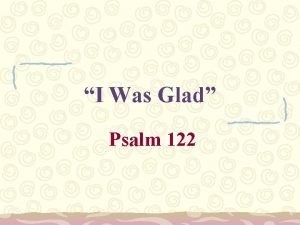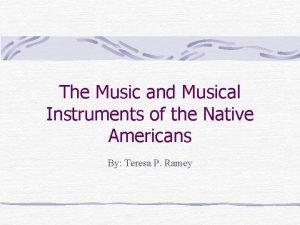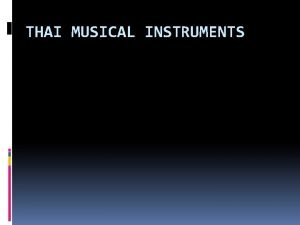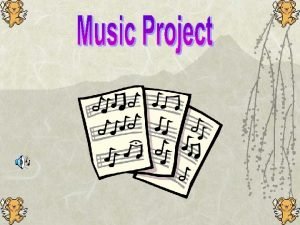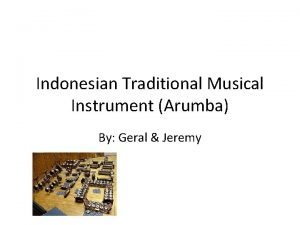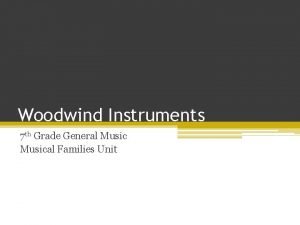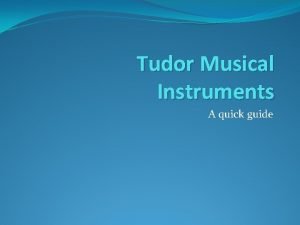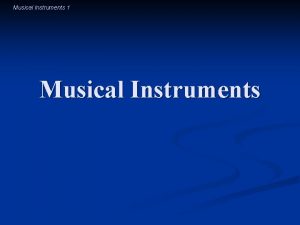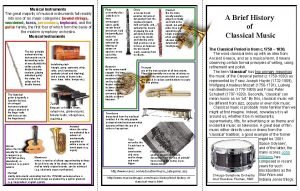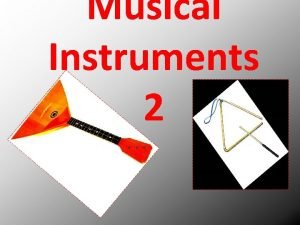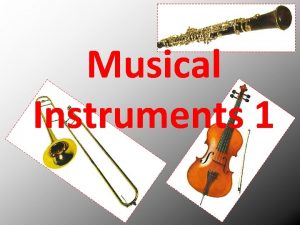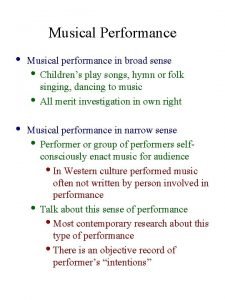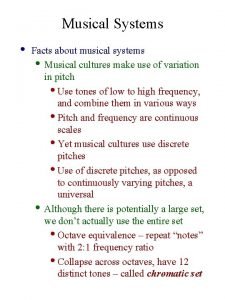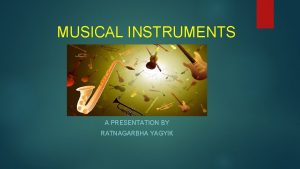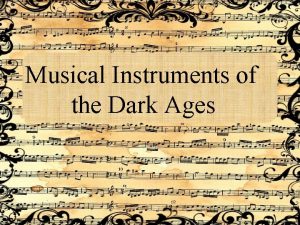Lesson 3 Musical Performance of Tehillim Instruments According












- Slides: 12

Lesson 3 Musical Performance of Tehillim

Instruments According to Josephus (1 st century A. D. ), the kinnor used by the Temple musicians had ten strings; the nevel, twelve. The Bible also mentions the nevel `asor or `asor, probably a tenstringed nevel; the nevel `alamot or `alamot, apparently an alto-pitched or "maidenly" nevel; and the kinnor `al - hashsheminit or hashsheminit, a "lyre upon the eighth". According to Suzanne Haïk. Vantoura, this last instrument (like the Greek magadis) may have had ten pairs of strings tuned so that each pair of strings was an octave apart.

Psalteron (harp). Made of wood with ten strings. Heighth 90 cm. Gaza 6 th century BCE. Reconstructed according to ancient mosaics. מנים - The Lute. A bronze figurine, female, playing the lute, heighth 15. 5 cm. Beat Shean, 15 -13 th century BCE. תף - Woman with Timbrel. Pottery figurine, heighth 10. 5 cm. Cyprus 6 th century BCE.

What would the Psalms have sounded like when sung?

Ugaritic Song Text found in modern Syria Dates to 1400 BCE lyrics notation System of scales used in tuning text

Anne Kilmer’s reconstruction of the song


Introduction of Rabbi Abraham Ibn Ezra to Tehillim Thus says Abraham, the son of R. Meir (his soul rest in Paradise) Ibn Ezra the Spaniard: Blessed be the Lord who gives power to the ear that is implanted to understand every sound, and whose power is connected with that of the higher soul – not like the power of the eye, for its virtue is lacking neither by day nor by night, and it hears from all six directions, and is not obstructed by veil or wall. Moreover, were it not for the ears, speech would not have been created, for who would hear it? The words are like bodies and the meanings like spirits. There are sounds that delight and sounds depress; when the meaning of the speech is lofty, it may do great things, even angering one’s friend or appeasing one’s enemy – all the more so if it is said poetically; and when instrumental music is joined with the poem, then will marvels be beheld. Consider an evil spirit (and no disease is worse than that): when David the man of God played on the lyre before Saul he found relief. Moreover: “As the musician played, the spirit of the Lord came upon him” (2 Kings 3: 15). There are many such incidents with profane songs, and all the more so with sacred songs – the songs of God.

Music in the Bet Mikdash משנה מסכת תמיד פרק ז תקעו והריעו ותקעו באו ועמדו אצל בן ארזא אחד מימינו ואחד משמאלו שחה לנסך והניף הסגן בסודרין והקיש בן ארזא בצלצל ודברו הלוים בשיר הגיעו לפרק תקעו והשתחוו העם על כל פרק תקיעה ועל כל תקיעה השתחויה זה הוא סדר התמיד לעבודת בית . אלהינו The deputy high priest stood on the horn of the altar with the flags in his hand, and two priests on the table of the fat with two trumpets in their hands. They blew a teki'ah, a teru'ah and a teki'ah, and then went and stood by Ben Arza, one on his right hand one on his left. When he bent down to make the libation the deputy high priest waved the flags and Ben Arza struck the cymbals and the Levites chanted the psalm. When they came to a pause a teki'ah was blown, and the public prostrated themselves; at every pause there was a teki'ah and at every teki'ah a prostration. This was the order of the regular daily sacrifice for the service of the house of


שיר של יום Sunday - 24 Monday - 48 Tuesday - 82 Wednesday - 94 Thursday - 81 Friday - 93 Shabbat - 92

 Who wrote tehillim
Who wrote tehillim Tehillim 122
Tehillim 122 Native american musical instruments
Native american musical instruments Khrueang country
Khrueang country The smallest instrument but with the highest pitch
The smallest instrument but with the highest pitch Bamboo clarinets
Bamboo clarinets Vocal music of israel almost entirely vocal
Vocal music of israel almost entirely vocal Chapter 11 musical ensembles
Chapter 11 musical ensembles Musical instruments of indonesia
Musical instruments of indonesia Region 1 musical instruments
Region 1 musical instruments Ancient greek instruments
Ancient greek instruments Musical families instruments
Musical families instruments Tudor instruments
Tudor instruments

